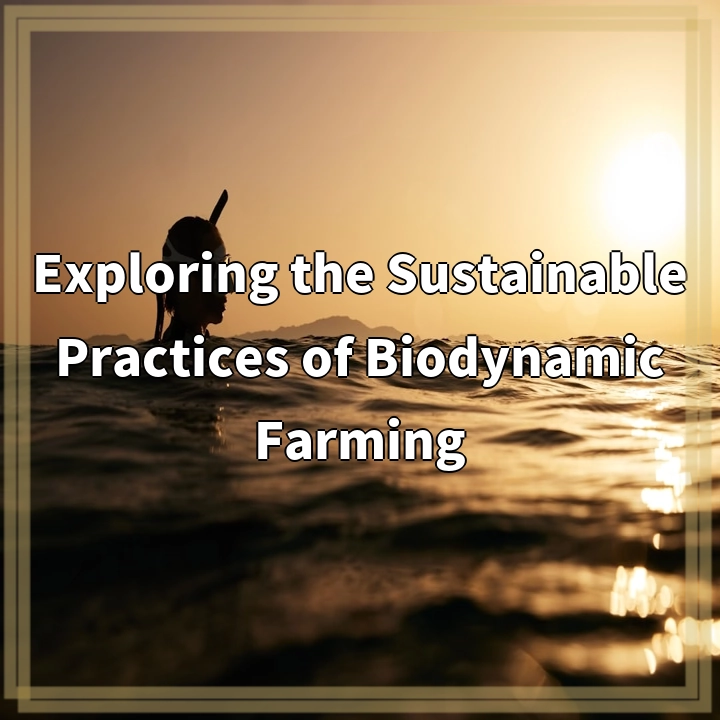Physical Address
304 North Cardinal St.
Dorchester Center, MA 02124
Physical Address
304 North Cardinal St.
Dorchester Center, MA 02124

Biodynamic farming is an agricultural practice that goes beyond organic farming to incorporate holistic and sustainable principles. It was first introduced in the early 20th century by Austrian philosopher Rudolf Steiner. The aim of biodynamic farming is to create a self-sustaining, closed-loop system that harmonizes the farm’s interactions with the environment.
Biodynamic farming employs a range of sustainable practices that promote biodiversity, soil health, and natural pest and disease management. Here are some key practices involved:
Biodynamic farmers prioritize soil health by using composting methods that incorporate natural ingredients like manure, plant matter, and kitchen waste. Compost is meticulously prepared and applied to enhance soil fertility and structure.
In biodynamic farming, crop rotation is practiced to reduce soil erosion, control pests, and promote balanced nutrient cycling. Planting a diverse variety of crops helps maintain soil health and reduces the risk of pest and disease outbreaks.
Livestock plays a crucial role in biodynamic farming systems. Animals contribute manure for compost, graze on cover crops, and help manage pest populations naturally.
Biodynamic farmers utilize specific preparations made from natural ingredients such as plants, animal manure, and minerals. These preparations are used in specific ways, such as enhancing soil vitality or promoting plant growth.
While biodynamic farming offers numerous benefits, there are some challenges and concerns associated with its implementation:
Biodynamic farming practices require more time and labor compared to conventional farming methods. The meticulous preparation of compost and the diverse management of crops and livestock demand extra effort and resources.
Implementing biodynamic farming on a large scale can be financially challenging due to the labor-intensive nature and the need for specialized knowledge. It may not be feasible for every farmer to adopt biodynamic practices on a commercial level.
While biodynamic farming principles align with the broader ideas of sustainable agriculture, some practices may lack extensive scientific research and consensus. This can lead to skepticism and limited acceptance within the scientific community.
Despite these challenges, biodynamic farming offers an intriguing approach to sustainable agriculture. By prioritizing soil health, biodiversity, and natural processes, it presents a holistic and environmentally conscious method of food production.
1. Education and Training
Providing education and training programs to farmers can help overcome the labor-intensive nature of biodynamic farming. This will equip them with the necessary knowledge and skills to implement sustainable practices effectively.
2. Collaboration and Knowledge Sharing
Encouraging collaboration and knowledge sharing among biodynamic farmers can help overcome scalability challenges. By pooling resources, sharing best practices, and collectively marketing their products, farmers can achieve greater economic viability.
3. Continued Research and Development
Investing in scientific research and development can address the lack of consensus surrounding biodynamic farming. Conducting studies to validate the effectiveness of specific practices and exploring their broader environmental benefits will enhance its credibility.
By adopting these solutions, the challenges associated with biodynamic farming can be addressed, making it more accessible and viable for farmers. This will pave the way for a more sustainable and environmentally friendly agricultural system.
Biodynamic farming has the potential to contribute to a more environmentally friendly food production system.
If you’re wondering where the article came from!
#